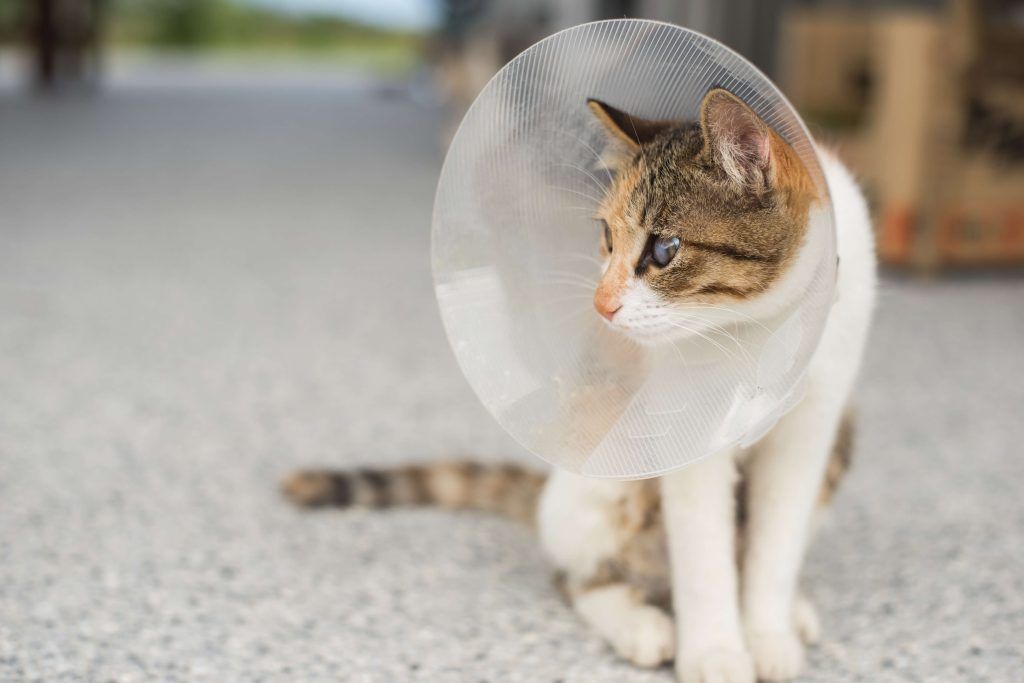Neutering your male cat is a responsible decision that impacts both their well-being and the broader feline population. Whether you’re contemplating getting your male cat neutered or are already preparing for the procedure, it’s vital to understand the steps before and after the surgery.
Not only does this provide peace of mind, but it also ensures that you’re doing the best for your pet. This guide offers comprehensive insights into what to expect before and after neutering, including answering questions like how much is it to get your male cat neutered, the benefits of neutering your male cat, and the ideal timing.
What is Neutering and Why Should You Neuter Your Male Cat?
Neutering, also known as castration in male cats, is a surgical procedure where a veterinarian removes the testicles of the male cat to prevent reproduction. This process is common and widely encouraged by veterinary professionals due to its numerous advantages, both for the cat and for the community.

Why Neutering Is Important?
One might ask, should you get your male cat neutered? The answer is typically yes. Neutering helps in controlling the population of unwanted kittens, but there are also multiple health benefits.
Unneutered male cats often become territorial and aggressive, exhibiting behaviours like spraying, roaming, and even fighting with other male cats. By neutering your male cat, these behaviours are generally reduced, and your cat is likely to lead a calmer and healthier life.
Moreover, what happens if you don’t neuter your male cat? Unneutered cats are at a higher risk for diseases such as testicular cancer and other prostate issues. They are also more likely to roam, which increases the chance of accidents and injuries. If left unneutered, your male cat could contribute to the already overwhelming number of stray cats, leading to overcrowded shelters.
Signs Your Male Cat Needs to Be Neutered
How do you know when it’s time to neuter your male cat? There are several signs to look out for:
- Increased Aggression: One of the signs your male cat needs to be neutered is heightened aggression. If your cat is becoming territorial and frequently fighting with other cats, neutering can help calm him.
- Spraying and Marking Territory: Male cats often spray strong-smelling urine to mark their territory. Neutering helps reduce or even eliminate this behaviour.
- Roaming and Wandering: An intact male cat may roam far from home to seek a mate. This can put them at risk for accidents or injuries.
- Constant Meowing: When a male cat is in search of a mate, they may become more vocal. This often results in loud and persistent meowing, especially at night.
By recognizing these behaviours, you can determine if neutering your male cat is the best course of action.
When Should You Neuter Your Male Cat?
One of the most common questions from pet owners is, when should you get your male cat neutered? The ideal time to neuter a male cat is typically between four to six months of age. At this point, your cat is sexually mature, and neutering can help prevent unwanted behaviour and health issues. However, some veterinarians may recommend neutering as early as eight weeks, depending on the health and size of the cat.
Is it Ever Too Late?
For older cats, you may wonder if neutering your male cat is still beneficial. While it is ideal to neuter a cat before they reach full maturity, it is never too late to neuter an adult cat. Even senior cats can benefit from neutering, as it reduces the risk of disease and curbs negative behaviours such as aggression and roaming.
How Much is it to Get Your Male Cat Neutered?
Cost is a significant consideration for many cat owners. So, how much is it to get your male cat neutered? The price of neutering can vary depending on your location, the clinic, and whether additional services (like vaccinations or blood tests) are provided. On average, neutering your male cat can cost anywhere from £30 to £100 in the UK. Many veterinary clinics and animal shelters also offer discounted or subsidised neutering programs to encourage responsible pet ownership.

Preparing for Neutering: What to Expect Before the Procedure
The day before getting your male cat neutered can be a bit nerve-wracking, but with proper preparation, the process will go smoothly. Here’s what you need to know before the surgery:
- Fasting: Your vet may ask you to withhold food from your cat for 8-12 hours before the surgery. This is a standard requirement to prevent complications during anaesthesia.
- Health Check: Ensure your cat is healthy. If your cat shows signs of illness, such as coughing, sneezing, or lethargy, inform your vet before the surgery. They may need to reschedule to ensure the safety of your pet.
- Comfort and Care: Prepare a comfortable, quiet space for your cat to return to after the surgery. This should be a low-traffic area where they can rest undisturbed.
What to Expect After Neutering: Post-Procedure Care
Post-surgery care is crucial for a smooth recovery. Here’s what to expect and how to ensure your cat’s well-being after neutering:
Immediate Recovery Period
After the surgery, your cat may be groggy and disoriented due to the effects of the anaesthesia. This is perfectly normal. It’s essential to create a calm environment for your cat to rest and recover.
- Restrict Activity: For the first 24-48 hours, your cat should avoid running, jumping, or any form of strenuous activity. Too much movement can stress the surgical site and delay healing.
- Monitor the Incision: Keep an eye on the surgical site for any signs of infection, such as swelling, redness, or discharge. If you notice any abnormalities, contact your vet immediately.
- No Licking: Your cat may try to lick the incision, which can lead to infections or complications. Most vets will recommend an Elizabethan collar (E-collar) to prevent this behaviour.
Long-Term Care
In the days following the procedure, your cat should begin to return to their normal self. Here’s a breakdown of what to do after your male cat gets neutered:
- Pain Management: Your vet may prescribe pain medication to help your cat during recovery. Administer these medications as directed.
- Diet: Your cat may have a reduced appetite post-surgery, which is normal. Offer them a small amount of food and water, and gradually reintroduce their regular diet.
- Check-Ups: Most vets will schedule a follow-up appointment a few days after the surgery to ensure everything is healing correctly.
The Benefits of Neutering Your Male Cat
There are many advantages to neutering your male cat, both for your pet and for you as an owner.
- Improved Behaviour: Neutering reduces or eliminates behaviours like spraying, aggression, and roaming, making your cat more relaxed and easier to live with.
- Health Benefits: Neutered cats are at lower risk for testicular cancer and other reproductive diseases. Neutering also prevents injuries and infections associated with roaming and fighting.
- Population Control: Neutering helps reduce the number of unwanted kittens, contributing to fewer cats in shelters and reducing the risk of euthanasia for homeless animals.
What Happens if You Don’t Neuter Your Male Cat?
Failure to neuter your male cat can lead to several unwanted consequences. So, what happens if you don’t neuter your male cat? Unneutered cats are more likely to engage in risky behaviours like roaming and fighting, which can lead to injuries, infections, or worse. Additionally, they are more prone to diseases of the reproductive system. By neutering your male cat, you’re promoting a healthier, more comfortable lifestyle for your pet.
Conclusion: Should You Neuter Your Male Cat?
In conclusion, should you neuter your male cat? The answer is overwhelmingly yes. Neutering offers numerous health and behavioural benefits for your cat while also helping to control the pet population. Whether you’re concerned about costs, timing, or the procedure itself, understanding what to expect before and after neutering is essential to ensure a smooth experience for both you and your pet.
By being proactive and informed, you’re providing your cat with a happier, healthier life while contributing to the well-being of the broader feline community.











